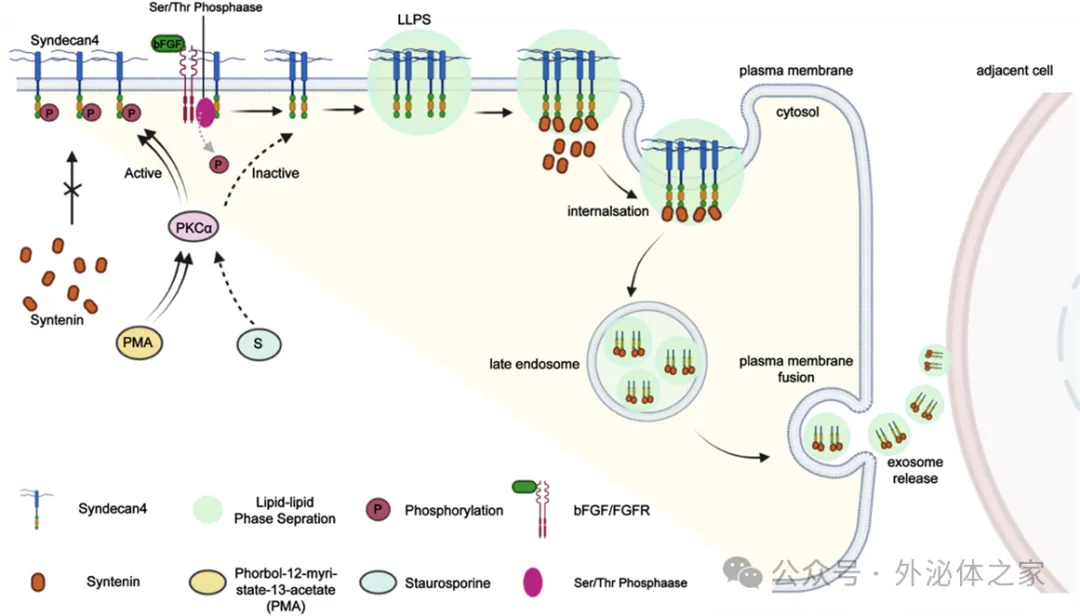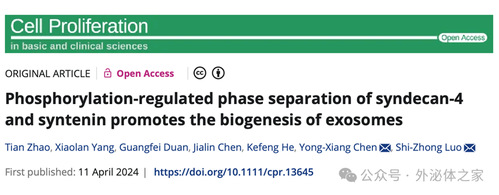Extracellular vesicles mediate intercellular signaling by delivering biomacromolecules to neighboring cells. The interaction between transmembrane protein syndecan-4 (SDC4) and cytoplasmic protein syntenin plays a crucial role in the biogenesis of extracellular vesicles. However, the mechanism by which the weak interaction between syntenin and SDC4 effectively enriches syntenin protein in extracellular vesicles remains unclear.
Recently, Professor Luo Shizhong's team from the School of Life Science and Technology at Beijing University of Chemical Technology, along with Associate Professor Chen Yongxiang's team from the Department of Chemistry at Tsinghua University, collaborated to publish a research paper titled "Phosphorylation-regulated phase separation of syndecan-4 and syntenin promotes the biogenesis of exosomes" in the international authoritative journal Cell Proliferation (2024 Apr 11: e13645). The study found that the formation of SDC4 phase separation greatly enhances the recruitment of syntenin protein to the plasma membrane, and phosphorylation of serine 179 at the SDC4-CD site can affect the enrichment of syntenin protein in exosomes and the invasive ability of tumor cells by regulating the formation of SDC4 phase separation.

The study combined in vitro and cell experiments for the first time demonstrated that SDC4 can undergo liquid-liquid phase separation (LLPS) in vitro and on cell membranes to form condensates. The low complexity SDC4 cytoplasmic domain (SDC4-CD) played a critical role, and further revealed that electrostatic and hydrophobic interactions mainly drove the LLPS of SDC4. Additionally, the study found that the formation of SDC4 condensates greatly enhanced the recruitment of syntenin protein to the plasma membrane. Phosphorylation of serine 179 at the SDC4-CD regulated the formation of SDC4 condensates, affecting the enrichment of syntenin protein in exosomes and the invasive ability of tumor cells. This work provides potential targets for further intervention in exosome-mediated biological processes, and is also of significant importance for studying the role of transmembrane proteins in disease occurrence and development. Professor Luoshi Zhong from the School of Life Science and Technology at Beijing University of Chemical Technology and Associate Professor Yongxiang Chen from the Department of Chemistry at Tsinghua University are corresponding authors of the article, with doctoral student Tian Zhao as the first author. Beijing University of Chemical Technology is the first completion unit of the paper. This research was supported by the National Natural Science Foundation and the National Key Research and Development Program.
References:
Phosphorylation-regulated phase separation of syndecan-4 and syntenin promotes the biogenesis of exosomes, Cell Prolif. 2024 Apr 11:e13645. doi: 10.1111/cpr.13645.

